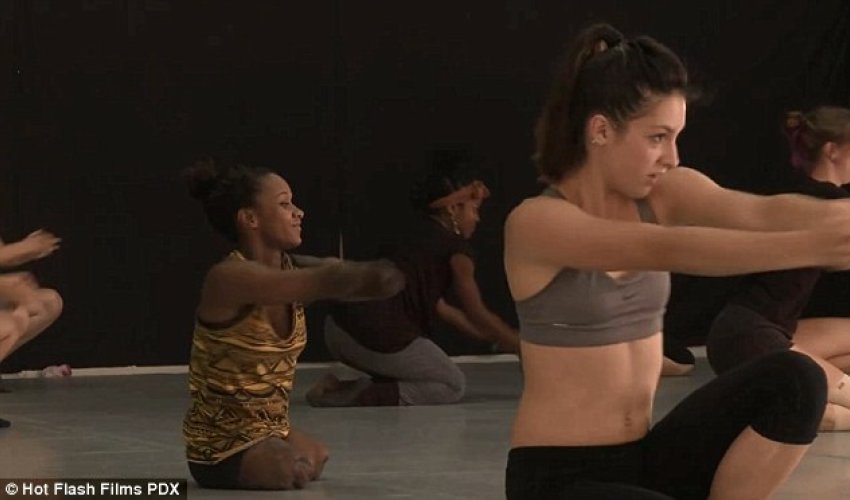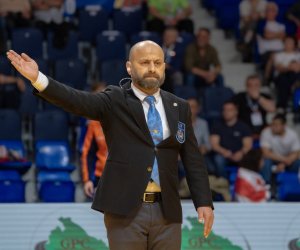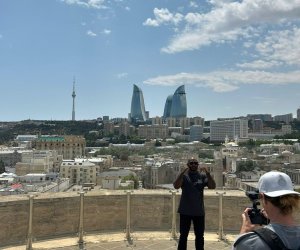Talented quadruple amputee pursuing her passion for dance - PHOTO

Portland, Oregon native Kiera Brinkley, 20, was just two years old when she contracted pneumococcal sepsis, a bacterial infection that cut off her blood streams and forced doctors to amputate her limbs.But instead of living a sedentary life, she took a different route. 'I was never the type of quote-unquote "disabled person" to stay in my wheelchair the entire day and have everybody wait on me,' she says in a clip from Soar.'I wanted to go out and do everything I had learned how to do with my arms and legs, and adapt to how to do it without them.'Now, she and her half-sister Uriah Boyd - who was born just a month before Kiera got sick - are the stars of Soar, which follows their lives as they endeavor to make it big in the dancing world.'Dance is my escape and my home away from home,' says Kiera. She told ABC News that when she's choreographing a dance, 'I picture myself with arms and legs. When I come to the class, I forget don't have any. I'm like, "Oh, I'm sorry about that," to the other dancers.'The documentary will not only delve into Kiera's unique movements as a dancer, but it will also explore her one-of-a-kind bond with Uriah. 'Dance is my escape and my home away from home'The sisters are so close, in fact, that when Uriah first learned to crawl as a baby, she did it by dragging her diaper on the ground like she had watched Kiera do, instead of on all fours.'She just grew up knowing how to help me and when to help me and when to push me away because she knew I could do it myself,' explains Kiera in the clip.'She is just like my mom - they don't give me any sympathy, but they make me work for what I want to do and what I have to do.'As they got older, Kiera and Uriah discovered a mutual passion for dance, and found that they could communicate through movement in their synchronized routines.Jaimen McMillan, the founder of Spacial Dynamics Institute, shares his first hand experience of witnessing the sisters dance together in a video on Soar's Kickstarter page.Kiera, who considered being a medical assistant before resolving to pursue a career in dance, is currently a fully-fledged member of Portland's Polaris Dance Theatre dance company, where she performs and choreographs.Her disability means that she will likely have a short-lived dance career; her movements onstage affect the bones in her legs, which means she has to have periodic surgeries to reshape them.But for now, she's focused on pursuing her passion, whatever it takes. 'When I got serious about dance, it was an expression,' she explains. '[It's] my voice without speaking.'(dailymail.co.uk)Bakudaily.az




































 Photo
Photo 



 Video
Video 

